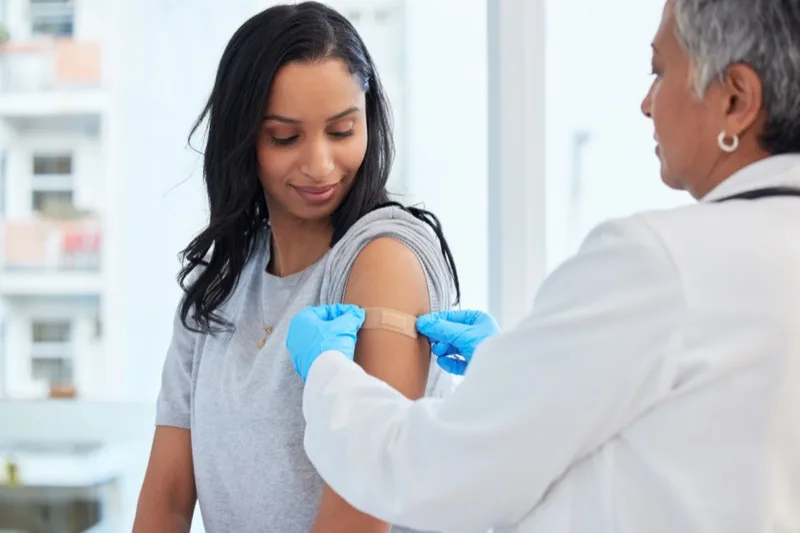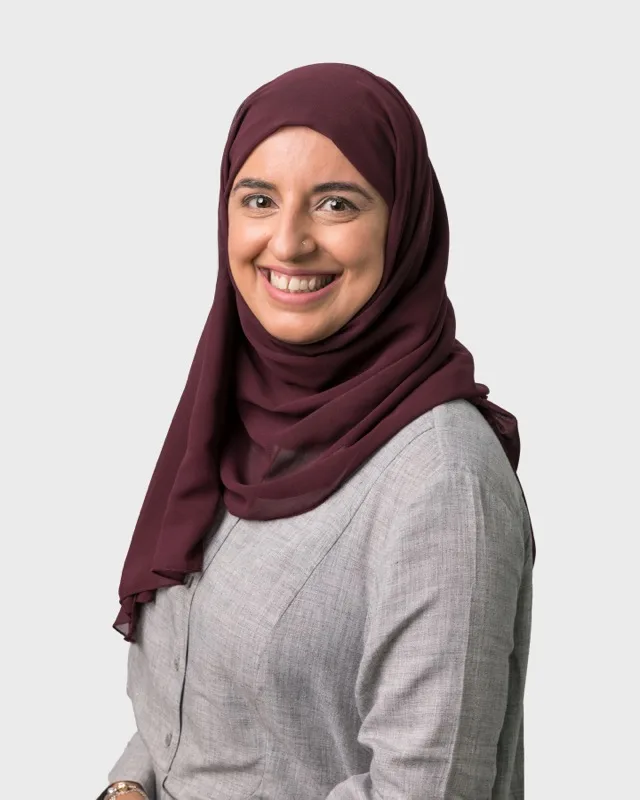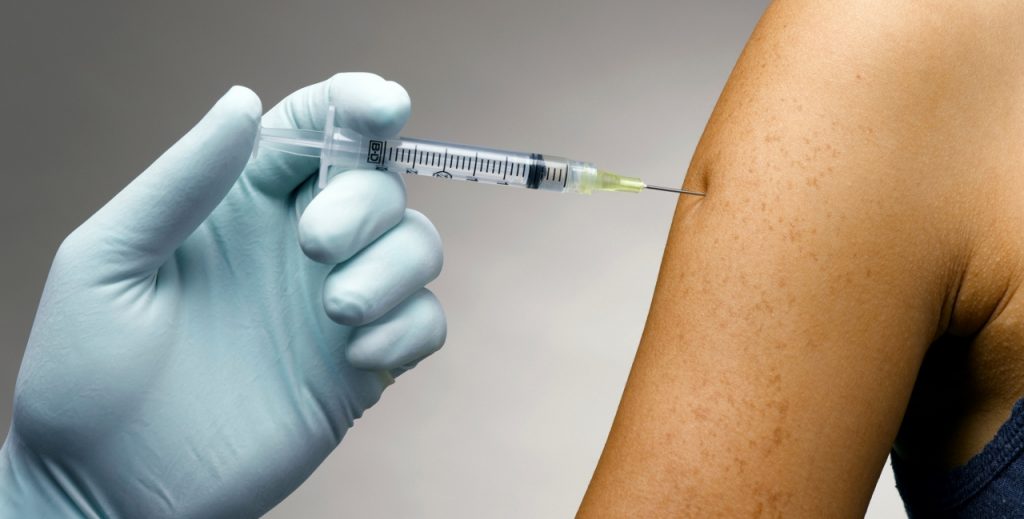
Human papillomavirus (HPV) vaccination reduces the risk of cervical cancer – but did you know it also reduces the risk of other HPV related cancers that can also affect boys – including some head, neck, anal and genital cancers? In this two-part series, learn how cervical screening and HPV vaccination could eliminate cervical cancer, or read on to find out how vaccination reduces the risk of cancer in people of all sexes.
Anne, a mother of two, made a difficult decision to have a hysterectomy before her 41st birthday.
“I didn’t really know anything about HPV,” says Anne, when talking about the untreatable human papillomavirus (HPV) infection that was persistently causing high-grade changes to the cells of her cervix, increasing her risk of cervical cancer.
“I only learned that some types of HPV could lead to certain types of cancer when cervical screening and follow-up tests, revealed I had it. Unfortunately, significant changes to the cells at the neck of my womb had already occurred. I had the changed cells removed, but as I still had HPV, it continued to cause cell changes in the cervix, increasing my risk of cancer.”
What is HPV?
HPV is a group of common, symptomless viruses affecting the skin. HPV has no cure but often goes away on its own, without causing a problem. However, some forms of HPV can cause cell changes that if left untreated, could become cancerous, leading to cancers such as cervical, anal, penile, vulval, vaginal and some types of mouth and throat cancers. It can also cause genital warts which are painless growths in the genital area.

Dr Jo Ruwende, a consultant in Public Health and the Screening and Immunisation Lead in London, explains that anyone can have HPV and not know it.
“Most people will get some type of HPV in their life, its symptomless and easily transmitted by intimate skin-to-skin contact.
“People can be surprised to find out they have HPV, especially if they have not been sexually intimate or had a new partner for many years. But HPV can also stay in the body for many years without causing problems.”
This was the case for Anne, who says: “I got HPV in a previous relationship that had ended over a decade ago. I didn’t have any visible signs of HPV, so had no way of knowing I had it.”
Reducing the risk of HPV

Dr Shelha Imtiaz-Umer, is a GP in the Midlands and wants to help people to understand the benefits of HPV vaccination. She says: “It is important to remember that while treatment is available for problems caused by high-risk forms of HPV, such as cancer or genital warts, we can’t cure HPV.
“But the vaccine offered to our young people, gives protection against infection from many forms of HPV. Reducing their risk of getting HPV-linked cancers of the genital, or mouth and throat areas.”
Dr Ruwende agrees, adding: “The Human papillomavirus (HPV) vaccine gives the best and most effective protection against most forms of HPV, reducing the risk of the cancers caused by them. While it doesn’t protect against all forms of HPV it is still a potential life saver for everyone.
“Because the HPV vaccine does not protect against all types of HPV that can cause cervical cancer, it is important that women who have had the HPV vaccine still come forwards for their cervical screening which uses a test to check for all types of high-risk HPV.”
Get your HPV vaccine
The HPV vaccine is given in a single dose to boys and girls in year 8, either at school or community clinics. Unfortunately, data shows that a lower percentage of boys are vaccinated against HPV than girls. This is something that Dr Ruwende, Dr Imtiaz-Umer and Anne are keen to see change.
Dr Ruwende says: “As 99% of cervical cancers are caused by HPV, people might mistakenly think HPV is just something that women and girls need to think about, but it’s for all of our young people, and is vital in protecting against a range of cancers.”
It’s important that parents can ask questions about the vaccine, says Dr Imtiaz-Umer: “When you get a letter seeking your permission to vaccinate your child against HPV, we are here to help you make an informed decision. If you have any questions or worries, please talk to a health professional you trust.”
Anne feels relieved that both her son and daughter are vaccinated against HPV: “The vaccine is safe and alongside cervical screening could make cervical cancer a thing of the past.
“The fact it can also protect my son and daughter against so many other cancers made it an easy decision. After what I’ve been through, vaccination made us all feel safer too.”
Can you have a missed HPV vaccination?

If you have not been vaccinated against HPV you can still get it free of charge at your GP practice if you are:
- aged 25 or below (for all girls and for boys born after 1 September 2006)
- or are aged under 45 and were born male and have sex with men and attend a HIV or sexual health clinic. This is because you have a higher risk of HPV.
Dr Ruwende advises people to avoid any unnecessary delay in booking their missed HPV vaccine. “It might be tempting to put it off until you’re in a relationship, or after Ramadan, Holi, Easter, or a planned holiday, but this might not be necessary and increases the risk of forgetting to do it.”
Dr Imtiaz-Umer adds: “The injection is given in to the muscle, so many scholars agree it doesn’t invalidate the Ramadan fast. But speak to your imam if you are worried.
“If you are pregnant, talk to your maternity team or GP practice about the best time for you to catch-up on your missed vaccination.”
If you are unsure about whether you or your child are vaccinated against HPV you can check the NHS App, or ask your GP practice. More information about HPV vaccination is available at HPV vaccine – NHS (www.nhs.uk)
The NHS has an ambition to increase the number of people who have had the HPV vaccine, to reduce the number of people experiencing HPV cancers, which along with people attending their cervical screening could eradicate cervical cancer by 2040.







